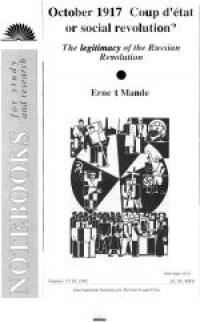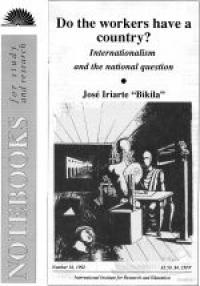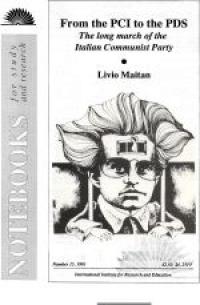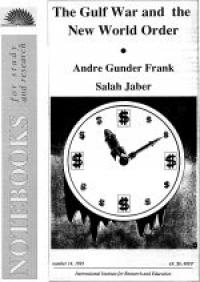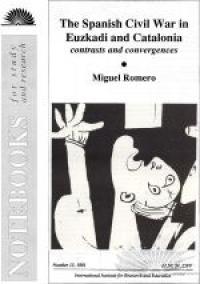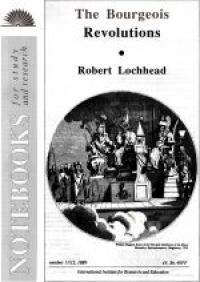Although it is no longer 'fashionable' to refer to it, the Russian Revolution remains a major experience of the twentieth century. Knowledge of it is indispensable to those who wish to understand the contemporary world, or to see clearly how to proceed in the fight for socialism. In October 1917: Coup d'Etat or Social Revolution?
Notebooks
No.17-18 October 17917: Coup d'état or social revolution?
- The legitimacy of the Russian Revolution by Ernest Mandel, 1992 - 64 pages€5,00Not available
No.16 Do the Workers Have a Country?
- by José Iriarte 'Bikila', 1991 - 48 pages€5,00
Marxism has contributed much to the understanding of the national question: its class dynamics, its relationship to internationalism, its political importance and the importance of the slogan of self-determination. Lenin's role in this was particularly significant.
No.15 From the PCI to the PDS
- The Long March of the Italian Communist Party by Livio Maitan, 1991 - 48 pages€5,00
In 1991 the Italian Communist Party completed its long process of social-democratization. For many years the PCI was proud of its 'communist identity' and even of its 'diversity' in the context of the national political system and the European left.
No.14 The Gulf War and the New World Order
- by Andre Gunder Frank and Salah Jaber, 1991 - 72 pages€5,00
The Gulf War and the New World Order provides thorough analyses of the Gulf War from the invasion of Kuwait (August 1990) to the aftermath of operation 'Desert Storm' ( January/February 1991). It examines the war's meaning for the Third World and gives detailed assessments of Western policies and the changing scene in the Middle East.
No.13 The Spanish Civil War in Euzkadi and Catalonia
- Contrasts and Convergences by Miguel Romero, 1991 - 48 pages€5,00
In The Spanish Civil War in Euzkadi and Catalonia, Miguel Romero questions conventional history and tries to look at it from the point of view of the defeated and oppressed.
No.11-12 The Bourgeois Revolutions
- by Robert Lochhead, 1989 - 72 pages€5,00
The current political relevance of the history of past revolutions is revealed in the ongoing polemics over the meaning of the French revolution of 1789 and the English revolution of 1640-60.

